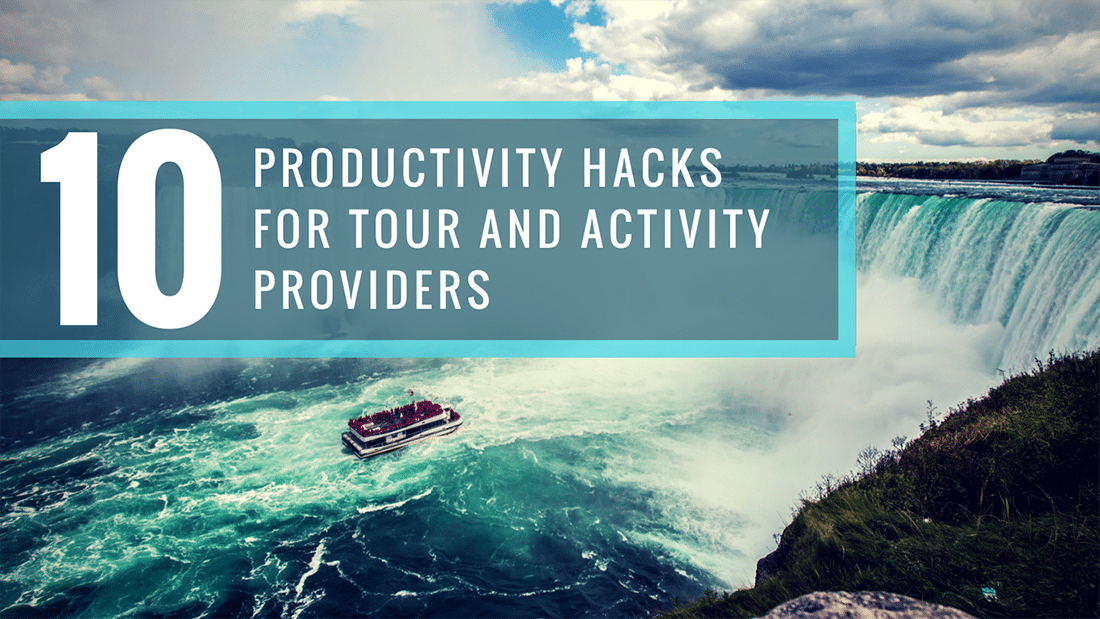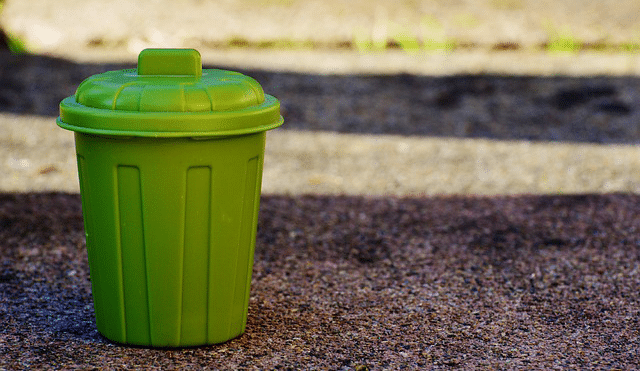
For many of us, finding the perfect productivity balance is a constant struggle. In high season, it’s hard to find time to get everything done. In low season, the lack of urgency gives procrastination room to rear its ugly head.
If you aren’t happy with how much you’re getting done or how much you always have left to do, you’re not alone. Our workdays are rarely designed to be maximally productive. Many common work practices make it harder to get things done, not easier. Thankfully, productivity experts have come up with solutions that are quick to implement and often far more efficient. Here are ten that could work for you.
1. Recognize the true scope of your tasks
The biggest productivity mistake we all make is to underestimate the size and complexity of our tasks. Say you want to start promoting your tours on social media. If you add “use social media” to your to-do list, it will sit there, uncompleted and unloved, gathering dust in the corner. Why? Because “use social media” isn’t actionable. It isn’t something you can do. It’s an entire project disguised as a single task.
A task should be smaller and more achievable. Rather than “use social media,” your first task might be “research social marketing techniques.” Then you might want to register Twitter, Facebook and Instagram accounts. Next, you could start taking photos of your tours or activities to liven up those accounts. Each of those steps is something you can achieve in an afternoon. Put tasks like them on your lists rather than broad plans that will take up an unknowable amount of time.
2. Eliminate unnecessary tasks
The second biggest productivity mistake you can make is to fill every waking moment with tasks. After all, there are a lot of usable hours in the day, so the most productive thing to do is to fill them, right?
Not quite. When you give yourself a to-do list that contains everything you need to do, everything you want to do, everything you should do, and everything other people want you to do, most of it will never get done. That sort of scheduling gives optional, unwanted tasks the same weight as critically necessary tasks, which makes identifying your priorities much harder. Worse, when some of them are left undone, you’ll wind up feeling like a failure – even when you’ve worked incredibly hard and achieved great things.

Focus your schedule or to-do list on what really matters. Write the rest down somewhere. Fill them into your schedule when you’re ready to do them immediately, not someday in the future. If they never make it onto your list, they probably weren’t that important to begin with.
3. Set realistic goals
Some people find that the best way to get ten things done in a day is to plan to do twenty, but the weight of that ongoing failure can be crushing. If you plan to overhaul next season’s tours, prepare a year’s worth of specials, and deal with that nagging staffing issue all in one day, it will be easy to give up and push things off until tomorrow.
Instead, give yourself extra time to deal with the tasks on your list. Think it will take you an hour to block out your absences for the next few months? Give yourself two. It will probably take way less time than you expect. With the extra time, you can give yourself a break if you need it, or move onto the next task if you don’t. That’s a win-win situation, especially when compared to planning too little time and ending up in a crunch.
4. Schedule your time
Most of us only use schedules insofar as our days interact with other people’s days — we plan for meetings, bookings, and obligations. But scheduling time for a task is a form of commitment, and it’s easier to complete tasks once you’ve committed to them.

Putting a task on a to-do list is an acknowledgement that you should do it. Scheduling time is a commitment that you will do it. There’s a world of difference between those two states.
Need help scheduling? Here’s a six-step process that makes it easy.
5. Practice a two (or four, or five) minute rule
If you aren’t in the middle of a focused task and something comes up that can be dealt with in just a few minutes, do it right away. The longer you put off a simple task, the more of your mental space it will waste. There’s nothing worse than stressing over an email from a guest all day only to realize it can be handled in two minutes.
There are two exceptions to this rule:
- If a task can be conveniently grouped with a bunch of other small tasks, especially if they’re all in one physical space, schedule them together rather than doing them all individually.
- If there’s no limit to how many times you could do the task, give it a set time and only do it as often as necessary. Sure, checking your email might only take a minute, but if it takes a minute twenty times a day and it takes you ten minutes to get back on task each time, you’re wasting far more time than you’re saving.
6. Write everything down.
Ever have a day when you feel like you’re both incredibly busy and getting nowhere? You’re probably getting stuck on tasks that you can’t currently address for one reason or another. Maybe you need to do more research, or talk to someone who isn’t available. Instead of ruminating on that task on and off for hours, write it down.
In David Allen’s Getting Things Done program, this is the first step: “Capture.” If you have some place to note down the tasks that you’re stuck on, the worries that are distracting you, and the plans you want to deal with later, they won’t spend whole days running around your head.
7. Take breaks
We’re all guilty of feeling like the only way to meet our goals is to work for hours and hours straight at times, but downtime is necessary. Breaks help us focus, paradoxically. They refresh our creativity and motivation, keep our stress levels down, and help us stay healthy.

Consider the Pomodoro technique. Named for pomodoro kitchen timers, this technique has you set an alarm for a stretch of work — generally, 25 minutes, but it can be as long as you think you can work in a focused manner without getting distracted — and then a second alarm for a short break. Whenever it’s time for a break, do something else for a few minutes. Check your email, take a walk, talk to someone, get some fresh air, even play a game on your phone. And when the break is up, get back to the task at hand. If you normally have trouble focusing, this has the added benefit of training up your attention span.
DeskTime, a popular productivity app, did some research and found that its highest-performing users worked for an average of 52 minutes before taking 17-minute breaks. The exact time matters less than the philosophy: focused work interspersed with breaks is more effective than intensive, break-free chunks of work.
8. Treat your body well
There are a thousand compelling reasons to neglect our own well-being when we’re busy. Sleep takes up precious time that caffeine doesn’t. Exercise, too. Eating right is slower than eating quick, and skipping lunch is fastest of all.
But taking care of yourself more than makes up for the time it costs. When you don’t get enough sleep, your memory, mood and attention span worsen. After a while, your cognition worsens to the point that you might as well be mildly drunk. Caffeine can only help so much, and caffeine crashes can be devastating to productivity. Conversely, sleeping enough sharpens your mind and focus. Exercise also offers huge benefits to focus, mood and energy. Same with breaks, a healthy diet, and drinking enough water.
If you run your own outdoor tours or activities, you’re already at an advantage. But if you’re at home or in the office all day, taking a few breaks to walk, do yoga, or just get up and move around can do wonders.
9. Learn to say “no”
The quickest way to find yourself always busy and never achieving your personal or professional goals is to take on too much. There are many reasons we do this to ourselves — obligation, wanting to be helpful, fear of missed opportunities, and so on — but it all comes down to the same thing: if you take on too much, everything you do will suffer.
Before taking on something new, ask yourself three questions: does this serve my long-term goals? Am I the right person for the job? Do I have time for this, period? There will be important tasks that don’t come out to three perfect yesses to those questions, and that’s okay. If you ask the questions, you’ll know what’s going to happen before you’re in over your head, and that makes all the difference.
10. Use the best tools for the job
There are two big mistakes to be made when it comes to software and other productivity-boosting tools or workflows:
Constantly bouncing between systems trying to find the perfect productivity solution: This can be a foolproof method of procrastination. You feel like you’re being more productive when in reality, you’re wasting an ever-increasing number of hours looking for perfection. In the end, you eke out what would amount to a few hours saved every year.
Continuing to use old, ineffective systems simply because they’re familiar: Change is difficult, both emotionally and practically, but it can be very worthwhile. New tools are constantly being created to make our lives easier. If the time it takes to learn a new tool or technique is significantly less than the time you’ll save by its use, carrying on with old habits becomes a crutch.
No productivity system will be perfect for everyone, but with these ten tips, you’ll be well on your way to a happier, more productive work day. Here at Rezgo, we’re all about making your time more worthwhile.
Search The Blog
Categories
Most Popular Articles
- Set-jetting, Forest Bathing, and Hush Trips: 20 Innovative Tourism Business Ideas and Trends for 2023
- Advantages and Disadvantages of Online Travel Agencies (OTAs)
- Your Marketing Mix: the 7 Ps of Travel and Tourism Marketing
- How to Create and Promote Amazing Tour Packages
- The Ultimate Free Guide to Starting a Food Tour Business





